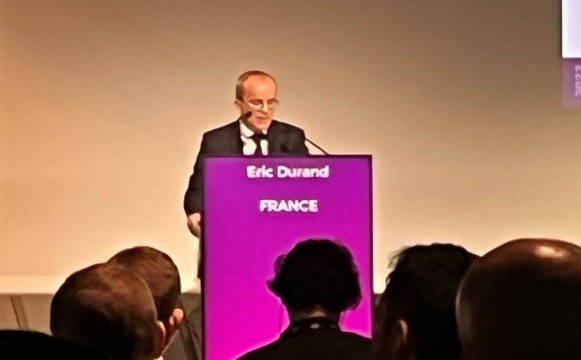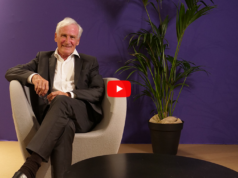 New data on robotic-assisted percutaneous coronary intervention (PCI) have been presented during a late-breaking trial session at EuroPCR 2022 (17–20 May, Paris, France). Results from the R-Evolution study, which included 62 patients across six European centres, concluded that PCI using the R-One (Robocath) robotic system are safe and effective for patients, while also reducing X-ray exposure for the cath lab team.
New data on robotic-assisted percutaneous coronary intervention (PCI) have been presented during a late-breaking trial session at EuroPCR 2022 (17–20 May, Paris, France). Results from the R-Evolution study, which included 62 patients across six European centres, concluded that PCI using the R-One (Robocath) robotic system are safe and effective for patients, while also reducing X-ray exposure for the cath lab team.
“This was the first clinical trial in Europe that aimed to assess the safety and efficacy of robotic coronary angioplasty. The results are extremely positive, with a technical success rate of over 95% and a clinical success rate of 100%, all of which show that angioplasties with R-One are safe and effective for patients,” said Eric Durand (Rouen University Hospital Center, Rouen, France), the co-principal investigator in the trial.
“In my experience, the average length of a robotic procedure (19.9 ± 9.6 min) is roughly the same as that of a manual procedure. Based on these results, the use of the robot genuinely heralds a new age in the treatment of heart conditions, something that has been sorely needed for 30 years given the significant challenges involved in this discipline, particularly the exposure to X-rays.”
One of the goals of the trial was to measure X-ray exposure to robotic operators compared with traditional manual operators. This was simulated by placing a pole near the operating table. The average radiation dose received by the robotic operator was 0.2µSv, which was 300 times lower than the radiation received by the simulated manual operator on the head and other parts of the body not protected by lead gear.
On average, performing a coronary angioplasty robotically reduces the physician’s exposure to X-rays by 84.5%. Robotic operators still receive some X-ray exposure while manually placing the first device prior to beginning the robotic portion of the procedure; if the physician has an assistant who places the first device, the radiation dose to the physician is reduced by 100%.
Jean Fajadet (Clinique Pasteur, Toulouse, France) co-principal investigator on the study, said: “Robotic coronary angioplasty marks a watershed moment. It is at this time the only viable and long-term answer to procedures becoming increasingly long and complex, and requiring high precision, expertise and experience in interventional cardiology. While it is revolutionary, the system uses the same devices as those currently used and is compatible with all imaging systems, which should make uptake easy among all physicians.”












